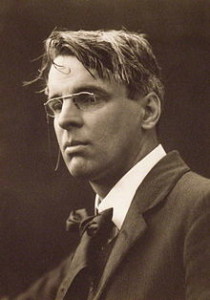National Poetry Month: The Story of a Dyslexic Poet
Written by Sandie Barrie Blackley, Speech-Language Pathologist
Published on April 16, 2013
 Inaugurated by the Academy of American Poets in 1996, National Poetry Month is now held every April as a month-long celebration of poetry and its vital place in American culture.
Inaugurated by the Academy of American Poets in 1996, National Poetry Month is now held every April as a month-long celebration of poetry and its vital place in American culture.
In a previous post, I featured Pulitzer Prize-winning poet Philip Schultz and his memoir entitled My Dyslexia. So in this post, in appreciation of National Poetry Month, I want to showcase another famous dyslexic poet, William Butler Yeats.
W. B. Yeats is one of the most famous poets of all time, winning the Nobel Prize for literature in 1923, but few people know about his personal struggle with dyslexia.
Yeats was educated in London and Dublin. In his autobiography, he speaks frequently of the frustration and struggles he experienced in his early education. He wrote, “Several of my uncles and aunts had tried to teach me to read, and because they could not, and because I was much older than children who could read easily, had come to think, as I have learned since, that I had not all my faculties.”
In another excerpt, he described his education: “I was unfitted for school work, and though I would often work well for weeks together, I had to give the whole evening to one lesson if I was to know it. My thoughts were a great excitement, but when I tried to do anything with them, it was like trying to pack a balloon in a shed in a high wind.”
From Yeats’ autobiography, we get the same sense of frustration felt by so many who struggle with dyslexia. Yeats pressed through the struggle with his “school work” to become not only a Nobel Prize winner, but one of the most famous poets of the 20th Century. Dyslexic writers and poets who have struggled with words and mastered them give us a glimpse of how persistence, passion, and dedication can lead to mastery and even to literary brilliance.
If your child struggles with reading, writing, or spelling, the most important first step is a professional evaluation. No matter where you live, your child can be tested and treated individually, face-to-face, online, by the clinical educators at Lexercise. Learn more here, or contact us at Info@Lexercise.com or 1-919-747-4557.
Improve Your Child’s Reading
Learn more about Lexercise today.
Schedule a FREE
15-minute consultation


